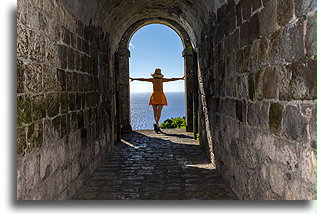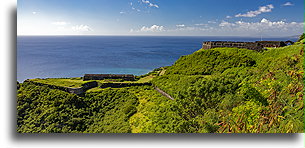After visiting many fortifications in the Caribbean and Central America, we found Brimstone Hill Fortress in Saint Kitts as one of the best-preserved and one of the largest in the region. It is an example of British military engineering from the 17th and 18th centuries. Construction began in 1690 and relied mainly on African slaves lent by plantation owners. Sharing slaves was not popular with their owners, so later on, the slaves at Brimstone Hill were owned and maintained by the British Crown. Slaves worked on the construction, provided services such as laundering once every six weeks, or were servants to the officers.
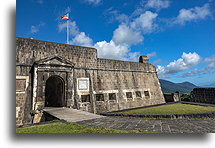
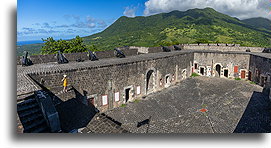
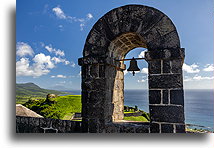
Life for the British garrisoned at Brimstone Hill was hard. The hot climate, many diseases that were difficult to treat, such as yellow fever and malaria, typhoid fever, and rum poisoning took their toll. To maintain discipline among the soldiers, punishment for crimes was severe. Prison was its mildest form. Other punishments included the "wooden horse," where sitting caused severe pain, or the whirlpool, a spinning cage whose rapid rotation caused violent physical illness.
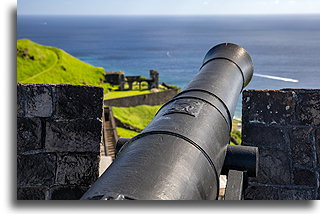
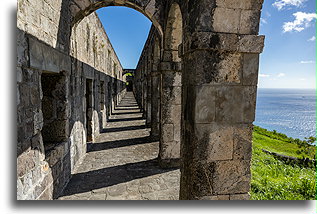
Brimstone Hill was the site of fierce fighting. In 1690, the British captured the hill from the French. In 1782, 8,000 French troops besieged the fortress. For almost a month, 1,000 British soldiers, local militia, and escaped slaves fought before surrendering. The French remained at Brimstone Hill for only a year, as based on the Peace of Paris in 1783 French Crown returned many Caribbean islands including Saint Kitts and Nevis back to Britain.
